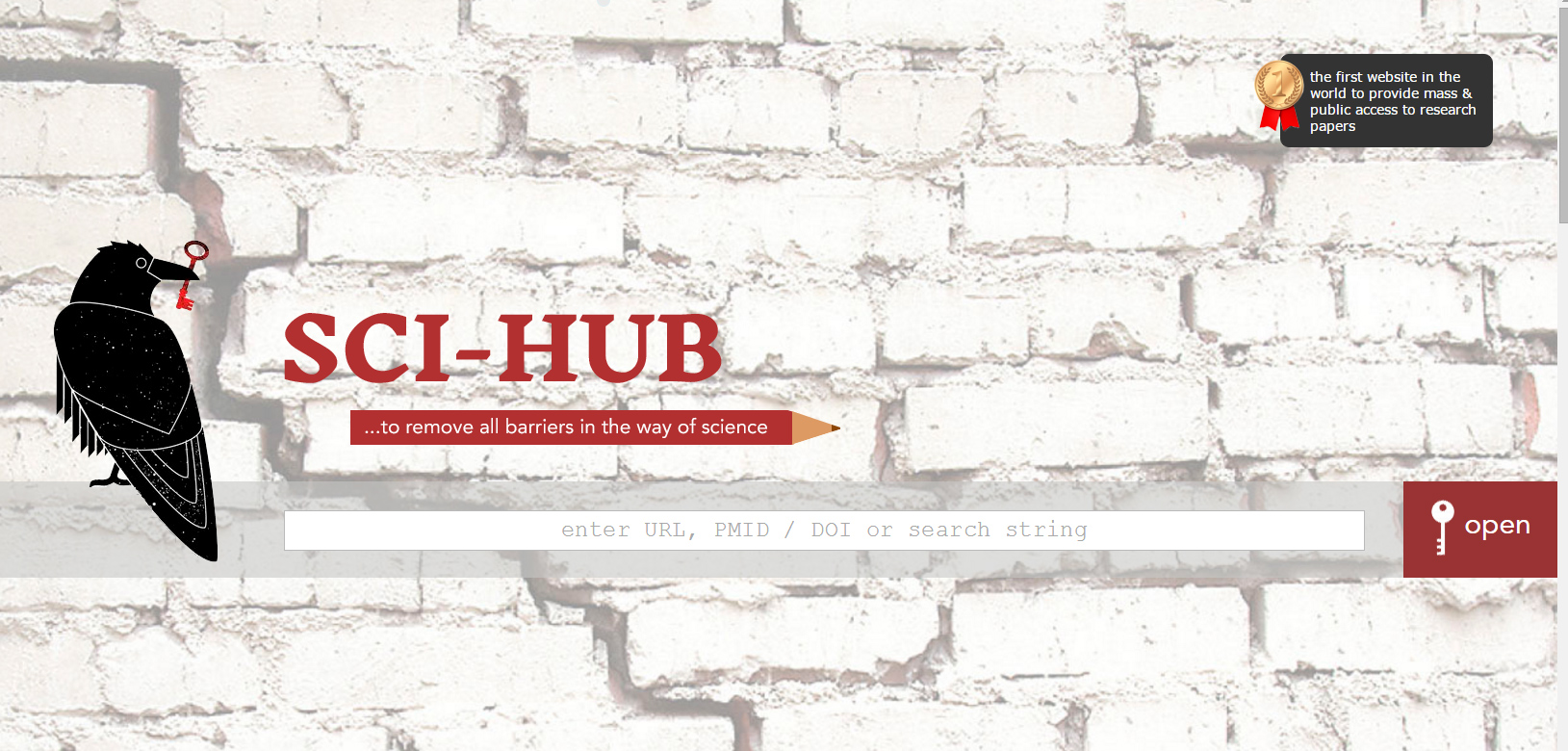Sci-Hub will not be blocked in the US anytime soon.

A few days ago, a US federal court once again ordered the operators of the Sci-Hub site to pay a fine of several million US dollars. This amount, according to the court, is the losses received by the owners of copyright (first of all, scientific publishing houses) on scientific literature published by the “pirates” from Sci-Hub on their resource. In addition, it was announced about the possibility of blocking the site by Internet service providers and search services under certain conditions.
True, the creator of the site, Alexander Elbakyan, is not going to pay all these millions of dollars (in the amount of about $ 20 million); And blocking the site, as far as can be judged, does not threaten in the near future.
As for the court ruling, it also indicates the need for domain registrars to block and hosting providers from banning content. This is in addition to blocking access to the resource by providers and a ban on the indexing of site pages by search services, as mentioned above. The lawsuit, among other things, states that all organizations that “actively interact” with it should block the resource. The phrase is quite blurry, which means that it can be understood in different ways.
It is the vagueness of this phrase in a court order that allows providers and search services to avoid the need to block the database of scientific literature, which is Sci-Hub. Lawyers clarified this ruling, stating that services that simply refer to a resource will not be affected in any way by this ruling. The only ones for whom it concerns - hosting providers that host content site.
“The court ruling is not related to search services in the general case, it directly concerns those organizations that actively interact with the resource, that is, post content stolen by Sci-Hub,” said a representative of the publishing house ACS, whose content, among other publications, provides free sci-hub.
As for providers that provide users with access to various network resources, their decision does not affect. “Yes, that's right, the Internet provider doesn’t affect the mentioned document. The usual posting of references to Sci-Hub is not an “active interaction”.
Most likely, the claimant, who is in a lawsuit in favor of ACS, will request that the domain registrars, hosting providers and, probably, Cloudflare cease all work with Sci-Hub. But further bans will not go.
But even such a court ruling, in the opinion of the Electronic Frontier Foundation, creates a dangerous precedent. The problem, according to the lawyers of this organization, is in the same vagueness of the concept of “active interaction”. It can be interpreted as you like, and no one will guarantee that today the plaintiffs are saying one thing, and tomorrow they will not begin to do something completely different, demanding that providers who have nothing to do with the respondent should also limit access to the Sci-Hub.
"The court should limit the list of those who may be affected by the ruling," says Mitch Stolz of the Electronic Frontier Foundation. "In particular, domain name registrars should not be forced to close / block the site because of the controversial content of such a resource. Such actions allow use the domain system as a tool for censorship. "
Almost immediately after the ban, the site became unavailable for a while. When trying to open it, users received the message “403 Forbidden”. The same thing happened with the Tor version of the resource. However, now the service is working, there are no problems with it.
The sci-hub scientific publishing attack is becoming more powerful . And this is no accident, because the resource allows you to access almost any scientific article that a scientist may need in the course of his work. The service provides access to materials of any type - both paid and free. But since most experts go to Sci-Hub to search for materials that are in the hands of publishers of big money, then it is the “paid” articles that are most relevant. That is why the resource is much more copies of paid materials than articles that are distributed free of charge.
Not so long ago, experts estimated that of the 57,074,208 articles in the Sci-Hub database, the vast majority of materials were present, more than 80%.
All Articles